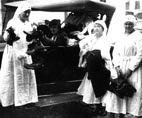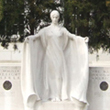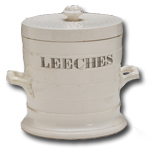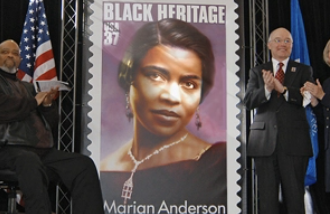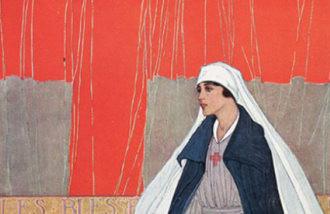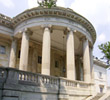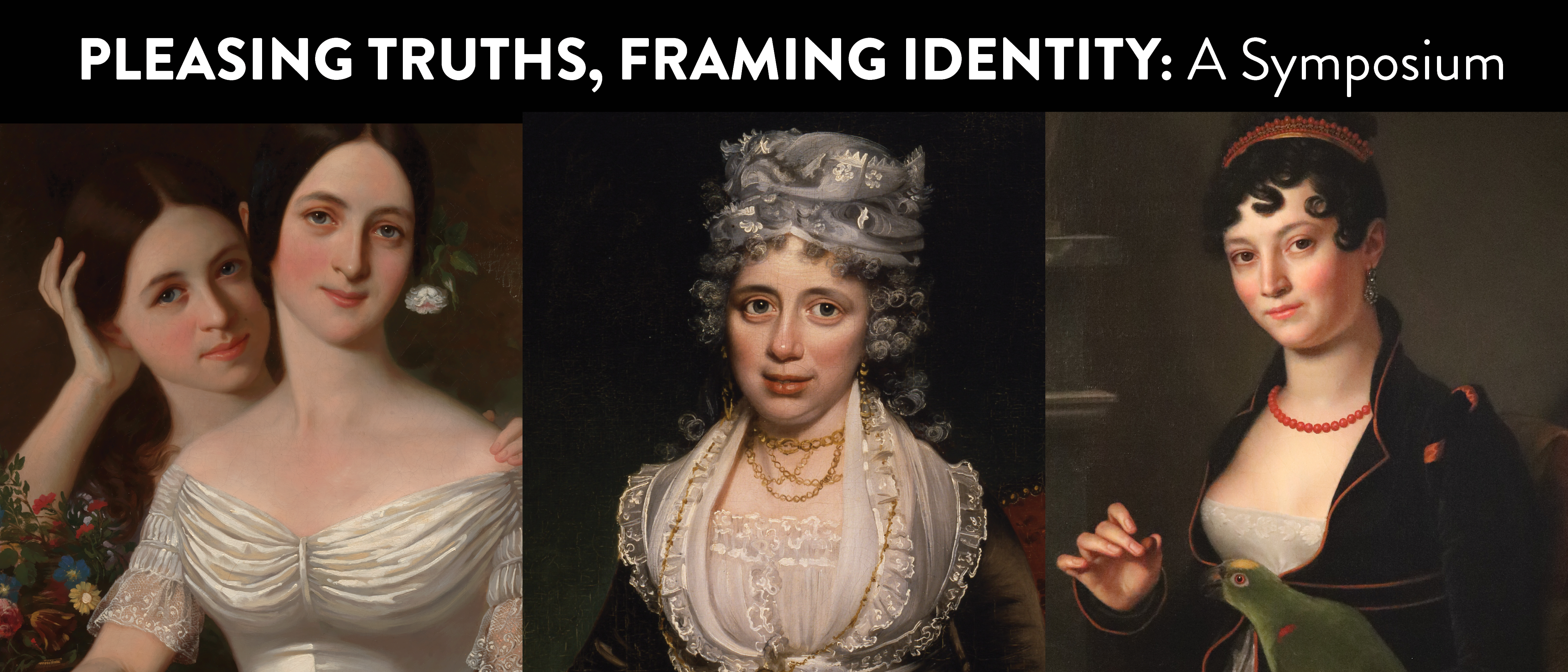
Friday, November 3, 2023
9am – 4pm
This year’s theme will explore the concept of identity and how it is conveyed as introduced in the DAR Museum’s exhibit, Pleasing Truths: Power and Portraits in the American Home. This exhibition takes a deeper dive into the context and symbolism of early portraits to better understand the transmission of ideas and their impact on people over time. Presentations will focus on American identity and will incorporate an element of decorative arts or material history. Listen to a full day of speakers and tour the exhibit with William Strollo, Curator of Exhibitions.
Virtual and in-person options available. Lunch provided with in-person registration
Sessions include: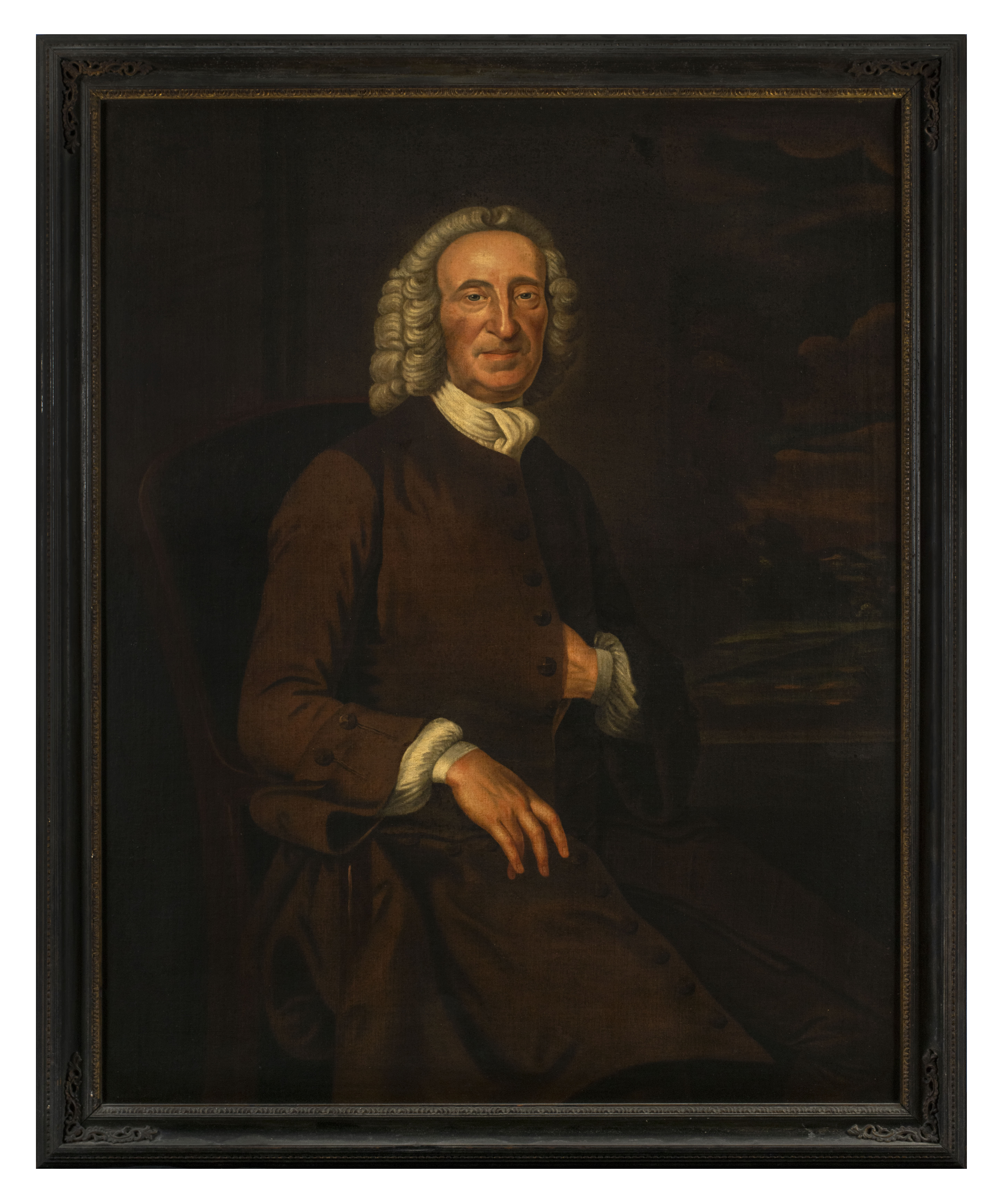
“Facing Slavery: Reframing the Lloyd Family Portraits”
This session explores the entangled stories of the Lloyd and Hammon families across geographies and generations of enslavement. The session pairs the Lloyd family portraits, which include works by or after John Smibert, John Wollaston, and Gilbert Stuart, with extensive correspondence, inventories, and legal documents. The session begins with the arrival of the first enslaved Africans to Long Island in the 1650s and continues through to the period of gradual emancipation in New York in the early nineteenth century. The session highlights the voices of enslaved individuals, including Jupiter Hammon, who wrote powerfully about the social and moral conflicts slavery raised in the newly formed United States. The session also examines how painted portraits were great luxuries during the colonial period, and how they embodied the wealth of generations for prominent families like the Lloyds. Despite this, enslaved individuals found ways to maintain connections and cultural traditions.[Photo credit: John Mare (1739–ca. 1803) after John Wollaston (active ca. 1742–1775). Henry Lloyd I (1711-1763), 1767. Oil on canvas, 55 x 44 in. (framed). Preservation Long Island, gift of Orme Wilson III and Elsie Wilson Thompson in memory of Alice Borland Wilson, 2020.5.1]
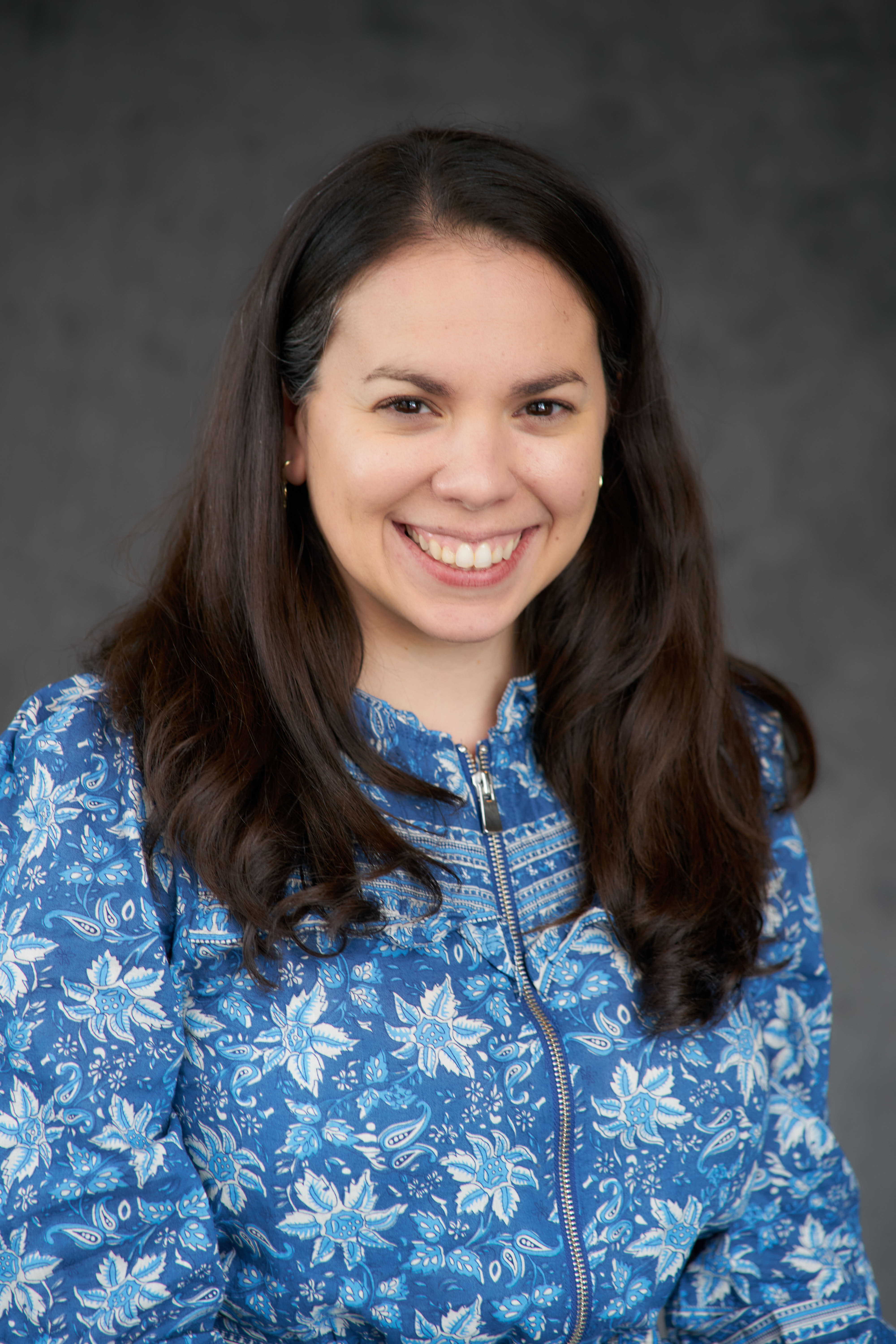 Lauren Brincat is the curator of Preservation Long Island, a regional organization with a mission to celebrate and preserve Long island’s diverse cultural and architectural heritage through advocacy, education, and stewardship of historic sites and collections. Lauren has worked in New York museums and historical societies for over two decades, specializing in exhibition and program development, curation, and collections management. She is currently the co-president of the Long Island Museum Association and a member of the museum advisory committee of the Bowne House Historical Society in Flushing, Queens. She previously held positions at the New-York Historical Society and the Museum of the City of New York. Lauren’s current curatorial work emphasizes community and institutional collaboration across the region with initiatives such as the Jupiter Hammon Project and the Art of Edward Lange Project. Lauren holds a B.A. in History and Anthropology from the College of William and Mary and an M.A. from the University of Delaware’s Winterthur Program in American Material Culture with a certificate in Museum Studies.
Lauren Brincat is the curator of Preservation Long Island, a regional organization with a mission to celebrate and preserve Long island’s diverse cultural and architectural heritage through advocacy, education, and stewardship of historic sites and collections. Lauren has worked in New York museums and historical societies for over two decades, specializing in exhibition and program development, curation, and collections management. She is currently the co-president of the Long Island Museum Association and a member of the museum advisory committee of the Bowne House Historical Society in Flushing, Queens. She previously held positions at the New-York Historical Society and the Museum of the City of New York. Lauren’s current curatorial work emphasizes community and institutional collaboration across the region with initiatives such as the Jupiter Hammon Project and the Art of Edward Lange Project. Lauren holds a B.A. in History and Anthropology from the College of William and Mary and an M.A. from the University of Delaware’s Winterthur Program in American Material Culture with a certificate in Museum Studies.
“Seeing Women: The Rise in Popularity of Women's Vision Aids in Nineteenth Century Am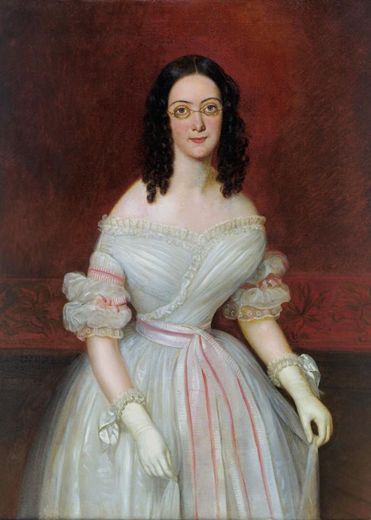 erica”
erica”
In the 19th century, vision aids were seen as both assistive devices and fashionable accessories. This session will explore how attitudes towards women wearing vision aids changed over time, from being only acceptable in theaters and outdoors to becoming a popular and sometimes obligatory feminine social accessory. The session will use portraits and photographs of 19th century women, as well as etiquette guides, popular magazines, and novels, to tell the story of how women used vision aids as items of individual expression and self-fashioning. The session will conclude by arguing that women exercised agency in choosing how they wore and styled their vision aids by the end of the period. [Photo credit: Jean-Joseph Vaudechamp, Mrs. Antoine Julien Meffre-Rouzan, 1839, Oil on Canvas, 116.8 x 90.2 cm, Louisiana State Museum, 11427.2. https://louisianadigitallibrary.org/islandora/object/lsm-lps%3A378]
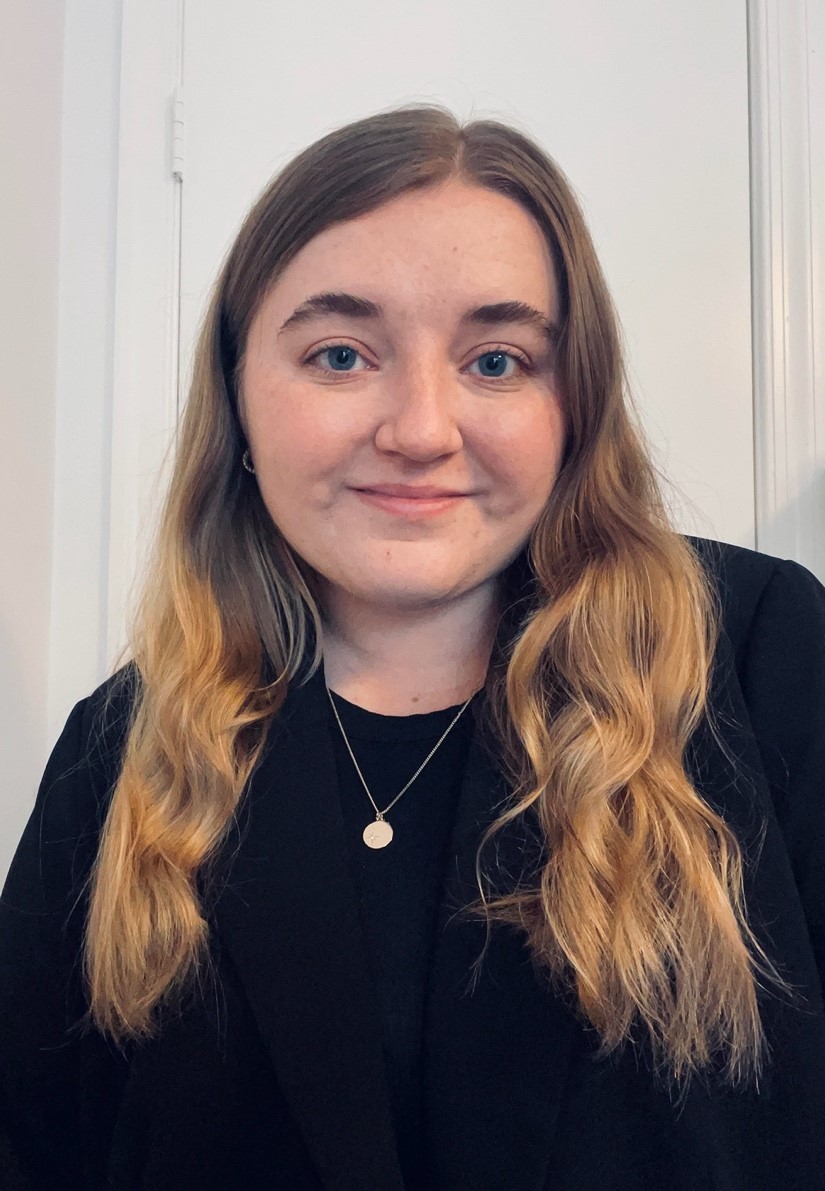 Emily Harvey is an art historian with a focus on nineteenth century women’s material culture, jewelry, and dress. Emily has a background in Historic Preservation and Museum Studies and recently finished her master’s degree in Decorative Arts, Design History, and Material Culture from the Bard Graduate Center in New York City.
Emily Harvey is an art historian with a focus on nineteenth century women’s material culture, jewelry, and dress. Emily has a background in Historic Preservation and Museum Studies and recently finished her master’s degree in Decorative Arts, Design History, and Material Culture from the Bard Graduate Center in New York City.
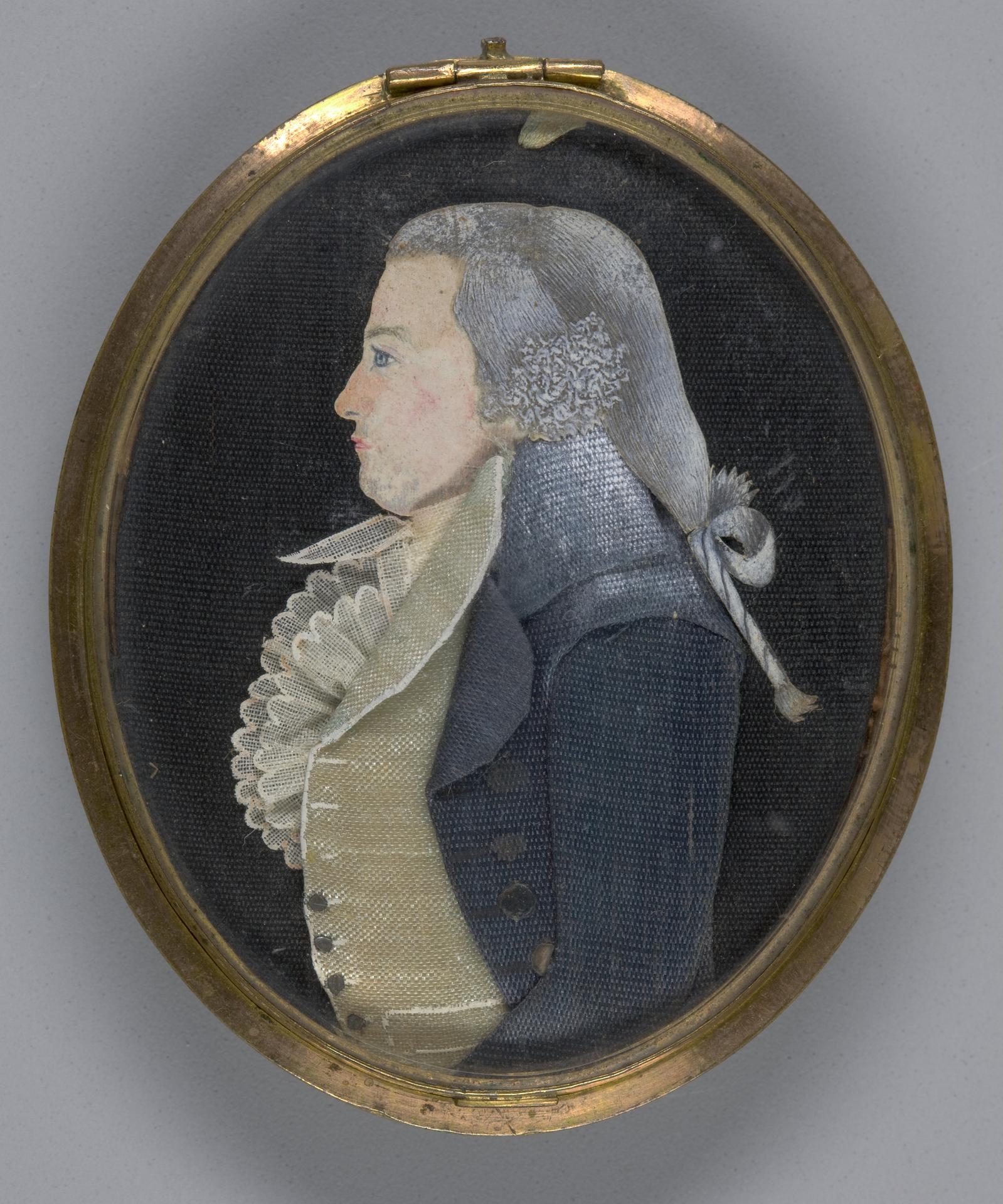
“Mary Way: Petite Pictures and Grand Acts of Fidelity”
Mary Way was a self-taught miniature painter who lived in New London, Connecticut, during the early republic. She developed a distinctive style of painting, referred to as “dressed miniatures,” in which she would carefully render a profile portrait on paper in watercolor and then cut it out and apply it to a black-silk ground. The sitter’s attire would be fashioned from delicate pieces of lace and fabric, often stitched together to create a detailed and realistic depiction. Way’s dressed miniatures were highly sought-after, and she was able to support herself as a professional artist in an era when professional opportunities for women were limited. Her work was praised for its whimsy and meticulous detail, and she was able to capture the individual character of her sitters while also creating stylish and elegant portraits. In this session, we will discuss Way’s artistic career and her contribution to the history of miniature painting in the United States. We will also explore how her work reflects the gendered and racial hierarchies of New London society. [Photo Credit: Yale University Art Gallery, Lelia A. and John Hill Morgan, B.A. 1893, LL.B. 1896, M.A. (Hon.) 1929, Collection, 1940.532]
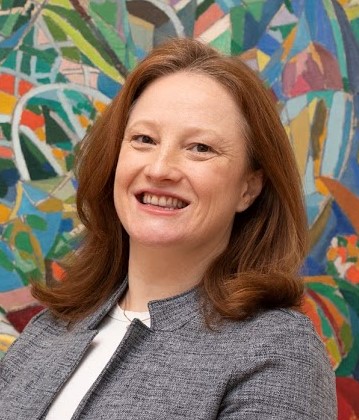 Dr. Josephine Rodgers earned her Ph.D. from Rutgers University, focusing on 19th- century American Art. Since 2018, she has been working with Mark D. Mitchell, the Holcombe T. Green Curator of American Paintings and Sculpture at the Yale University Art Gallery, coordinating details for the Gallery's upcoming exhibition ‘The Expressive Figure in the American Renaissance, 1876-1917.’ She has held positions at the Smithsonian Institution National Portrait Gallery, the National Gallery of Art, and the Cooper Hewitt, Smithsonian Design Museum. [Photo Credit: Jessica Smolinski]
Dr. Josephine Rodgers earned her Ph.D. from Rutgers University, focusing on 19th- century American Art. Since 2018, she has been working with Mark D. Mitchell, the Holcombe T. Green Curator of American Paintings and Sculpture at the Yale University Art Gallery, coordinating details for the Gallery's upcoming exhibition ‘The Expressive Figure in the American Renaissance, 1876-1917.’ She has held positions at the Smithsonian Institution National Portrait Gallery, the National Gallery of Art, and the Cooper Hewitt, Smithsonian Design Museum. [Photo Credit: Jessica Smolinski]
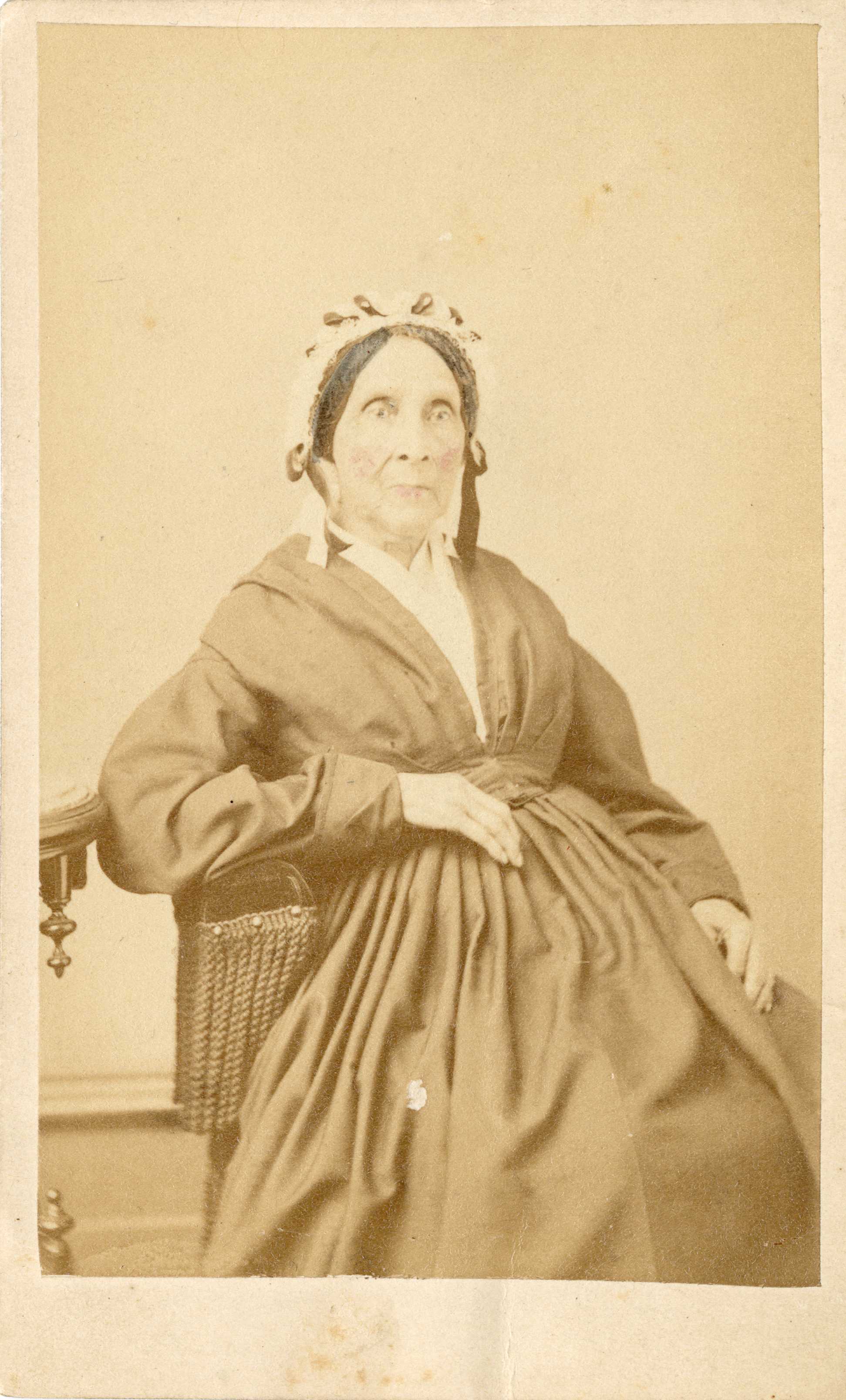
“Picturing the Fortens: Portraits of a Free Black Family in Philadelphia"
This session will explore painted and photographic portraits of three generations of the Forten family of Philadelphia to better understand their material world in the 19th century. The session will highlight the portraits of James Forten, Charlotte Vandine Forten, and Charlotte Forten, and will discuss the Fortens' patronage of abolitionist artist Nathaniel Jocelyn. The session will also address the research challenges and limitations of studying the Forten family's portraits, such as the fact that only one photograph of one of the nine children of James Forten and Charlotte Vandine Forten is known to survive. [Photo credit: This photograph shows abolitionist Charlotte Vandine Forten in the 1860s. She died in 1884 at the age of 99. Courtesy of the Moorland-Spingarn Research Center, Howard University Archives, Howard University, Washington DC]
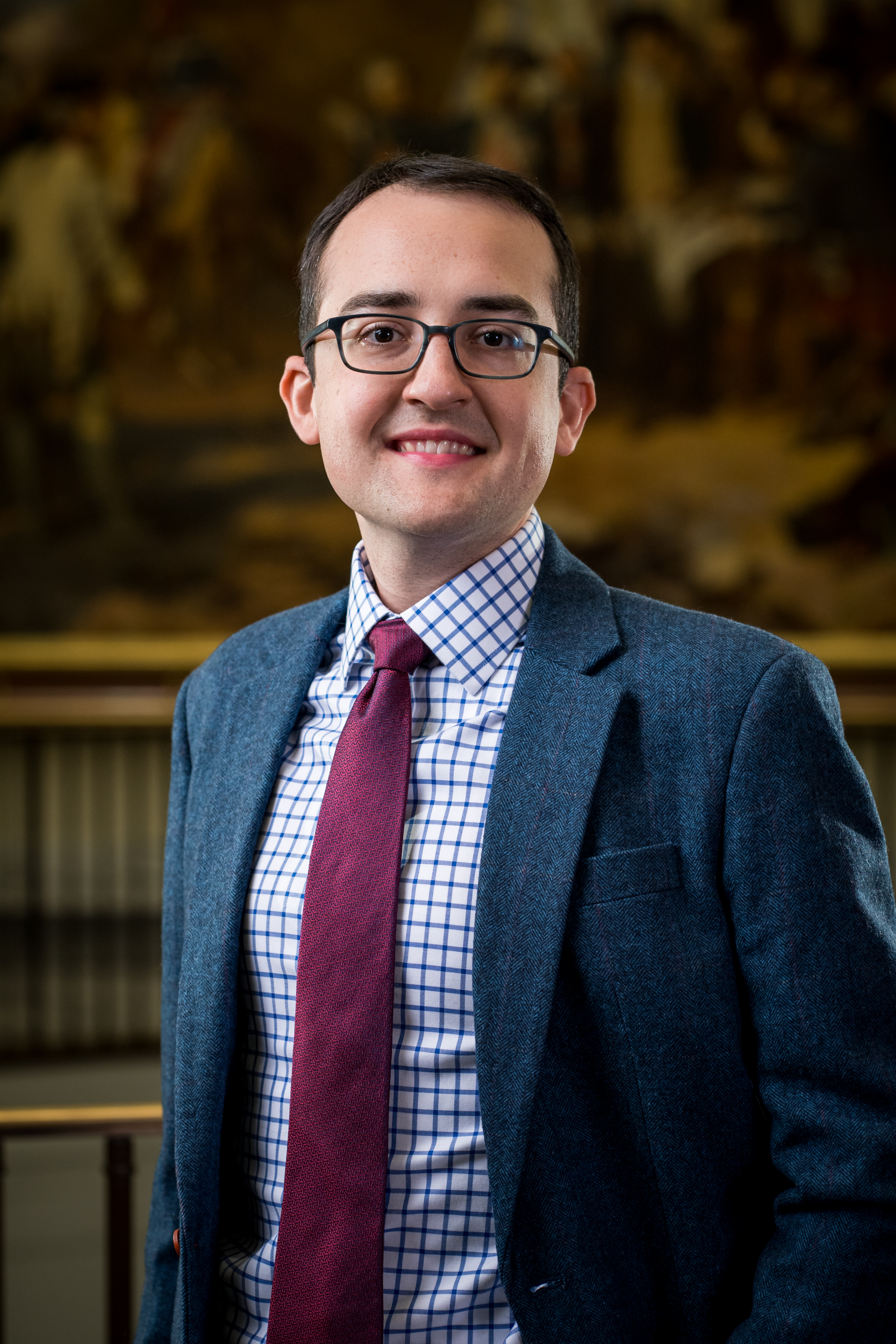
Matthew Skic serves as Curator of Exhibitions at the Museum of the American Revolution in Philadelphia. Originally from New Jersey, Matthew studied history at American University in Washington, DC. He joined the curatorial staff at the Museum of the American Revolution in June 2016 soon after graduating from the Winterthur Program in American Material Culture at the University of Delaware. Since the Museum’s opening in 2017, Matthew has curated multiple award-winning exhibitions, including Cost of Revolution: The Life and Death of an Irish Soldier, and has helped to expand the Museum’s online educational resources. He recently served as the lead curator of the 2023 special exhibit Black Founders: The Forten Family of Philadelphia, which is the inspiration for his talk.
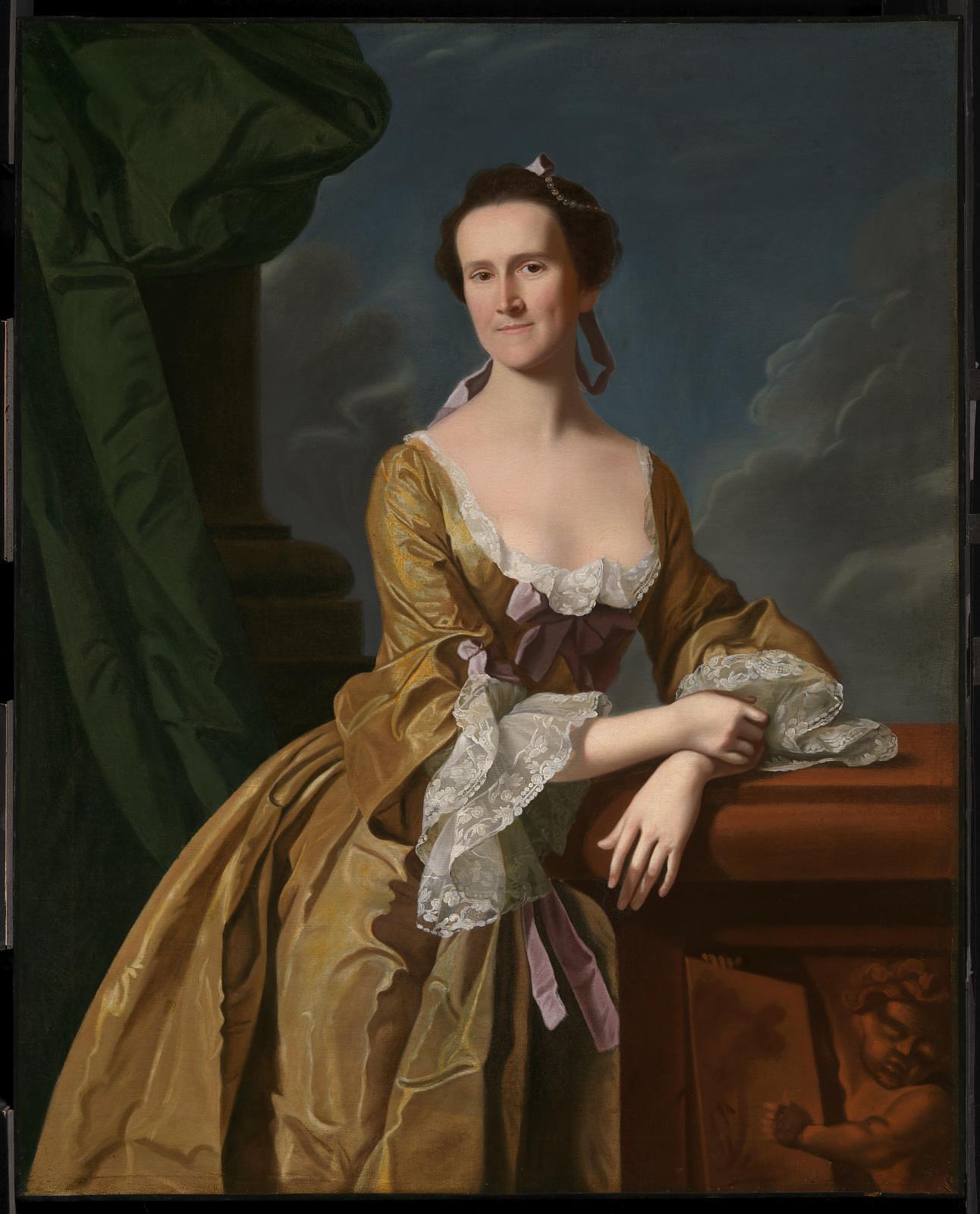
“Denying Loyalism: Martha Codman Karolik’s Ancestry, Collecting, and Nationalism”
Martha Codman Karolik was a Boston Brahmin who was deeply interested in her family history. She amassed a collection of heirlooms, including a portrait of her great-great-grandmother, Katherine Greene Amory, who was a loyalist. Karolik denied Amory’s loyalism and published her journal, which omitted any mention of her political views. Karolik’s denial of her family’s loyalism was part of a larger effort to promote ethnic nationalism. She donated the Amory portrait to the Museum of Fine Arts, Boston, as part of her effort to make American art available to educate the public. However, it is important to understand that the image’s legacy is interwoven with the erasure of loyalism and the promotion of ethnic nationalism [Photo Caption: Portrait of Mrs. John Amory (Katherine Greene), c. 1763, John Singleton Copley, Oil on Canvas, 126.68 x 101.6 cm (49 7/8 x 40 in.), The M. and M. Karolik Collection of Eighteenth-Century American Arts, 37.36, Image Courtesy of the MFA, Boston]
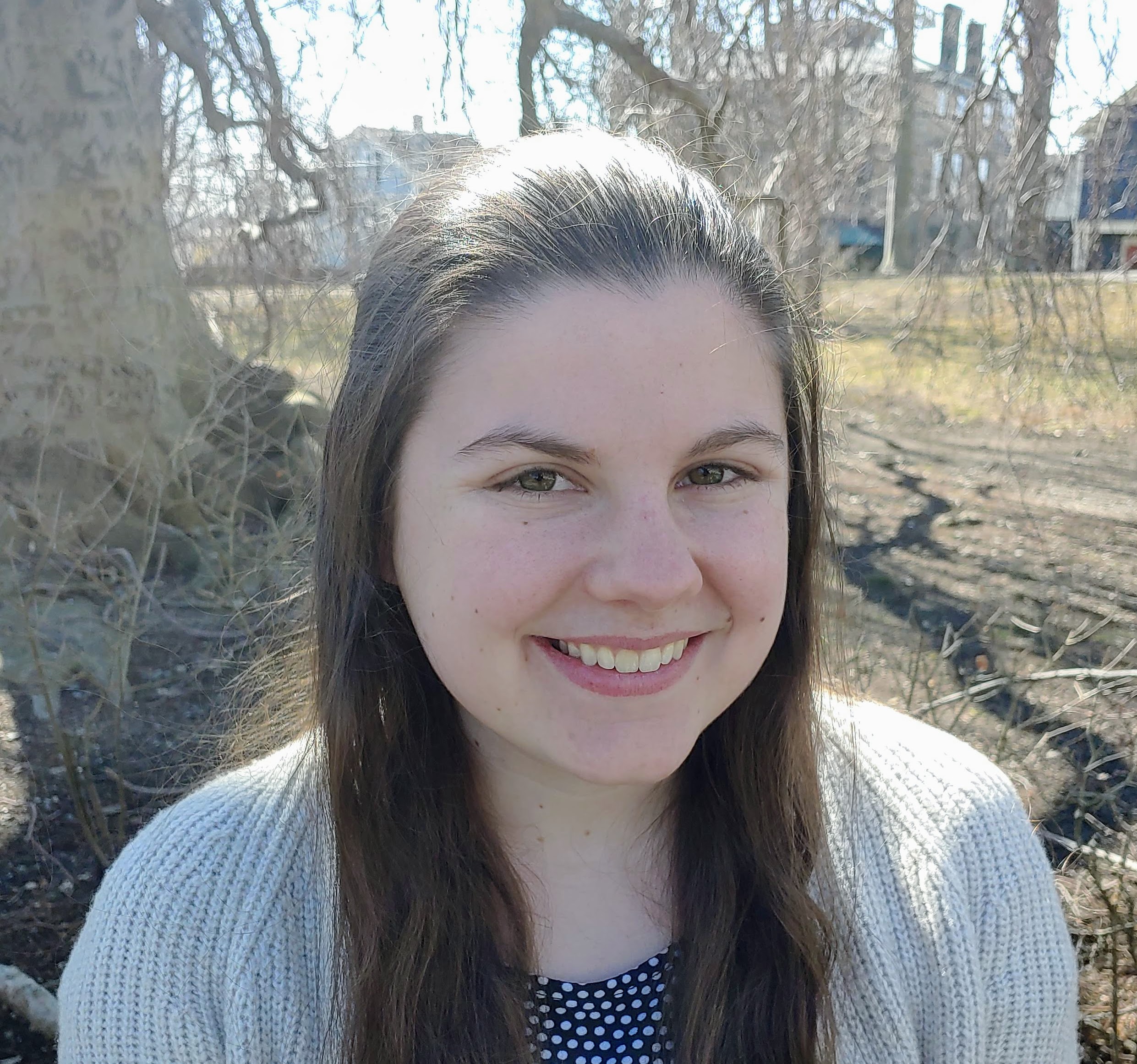
MaryKate Smolenski is a PhD Student in the American and New England Studies Program at Boston University. She studies the memory of Revolutionary-era loyalism, particularly in regards to material culture, female loyalists, and their descendants. MaryKate has previously worked with several museums and historical societies, including the Newport Historical Society, History Cambridge, and the GWU Museum and Textile Museum. Prior to starting her PhD, she completed a two-year fellowship at the Preservation Society of Newport County where she re-interpreted an eighteenth-century historic house museum, Hunter House. She also co-founded the non-profit, online publication, the Coalition of Master’s Scholars on Material Culture (CMSMC), which aims to fill a gap for master’s students to share their research.


